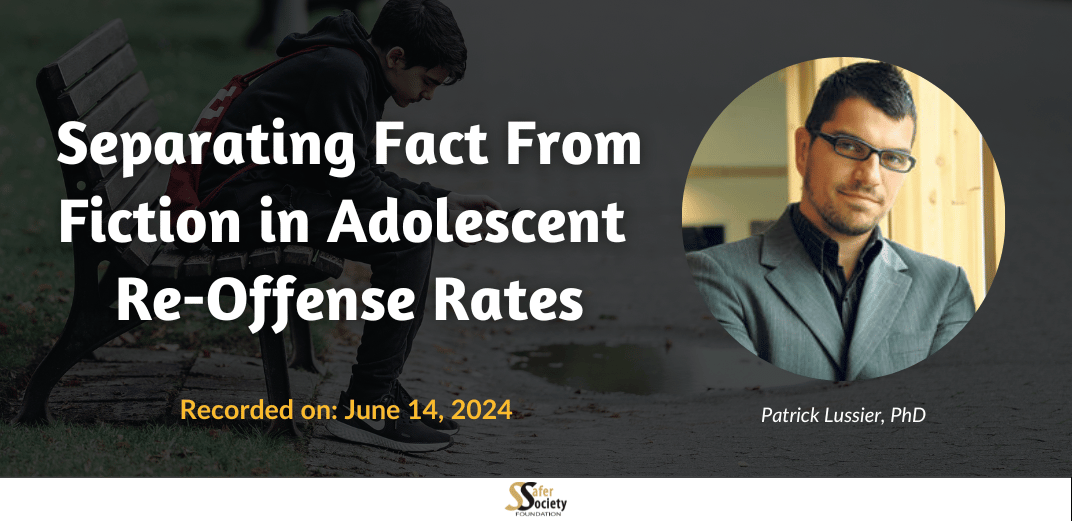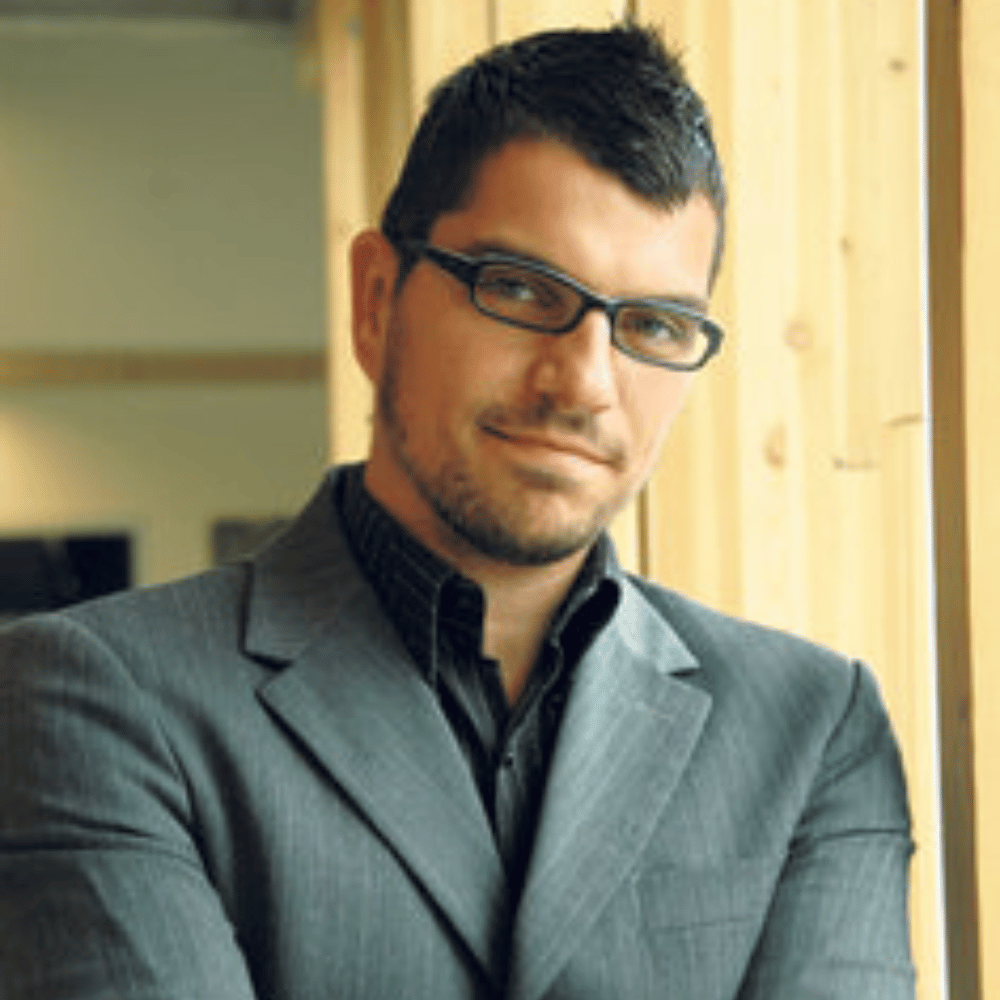
Separating Fact From Fiction in Adolescent Re-Offense Rates
This webinar is for professionals and policymakers who work with adolescents with sexual behavior problems, such as clinicians, therapists, probation officers, case workers, judges, and academics.
Decades of research have consistently refuted the misconception that adolescents have a high rate of sexual re-offending throughout their lives. Join professor and researcher Dr. Patrick Lussier and host David Prescott as they discuss the disconnect between societal beliefs and reality on this topic.
 Questions to be explored include:
Questions to be explored include:
- What is the true rate of sexual re-offending by youths, and how much does it really change over time?
- What factors have influenced these changes in re-offense by adolescents?
- What are the contexts in which sexual abuse has been studied?
Analyzing data spanning 80 years has led Dr. Lussier and his colleagues to study trends and consider how society has perceived these young people over time. Dr. Lussier points out that scientific literature is dense, fragmented, confusing, and often contradictory. It often relies on a few individual studies and a small number of influential researchers, posing challenges for evidence-based decision-making and policy formulation in this critical area.
Who's Presenting

Patrick Lussier, PhD
Patrick Lussier is a Professor (full) at the School of Social Work and Criminology at Université Laval and a researcher at the Centre International de Criminologie Comparée. His research focuses on the explanation and prevention of sexual offending and has been published in scholarly journals such as Criminology, Criminal Justice and Behavior, Criminology & Public Policy, Journal of Criminal Justice, and Psychology, Public Policy and Law. He earned is PhD in criminology from the Université de Montréal. He is the Editor-in-Chief of the Canadian Journal of Criminology and Criminal Justice. He recently co-authored, with Dr. Evan McCuish and Dr. Jesse Cale, the book entitled Understanding sexual offending: An evidence-based response to myths and misconceptions
